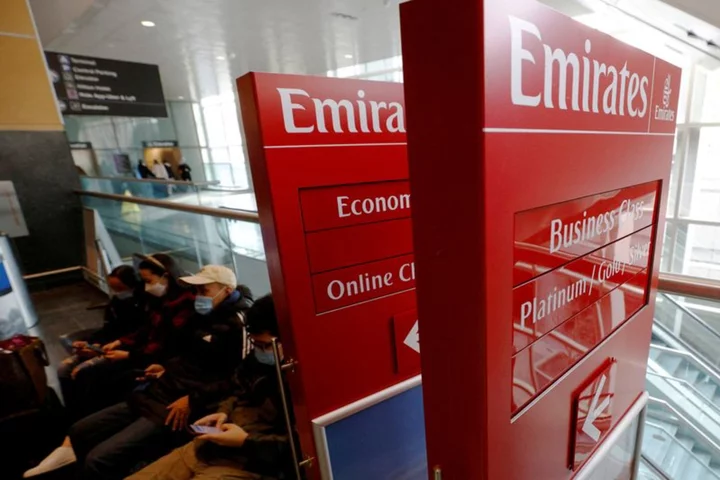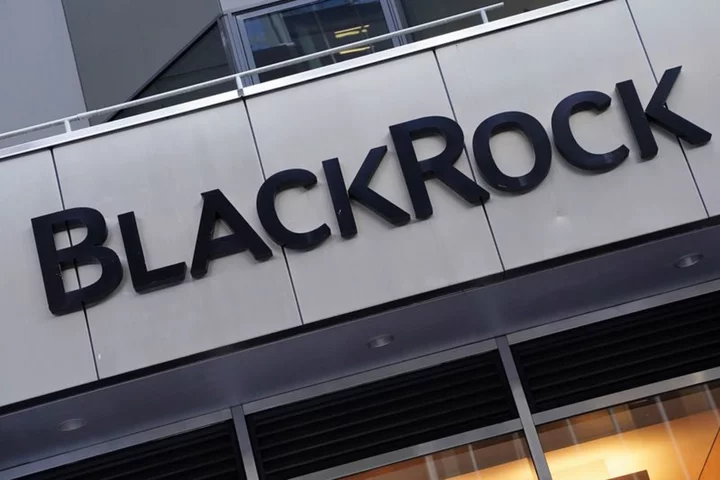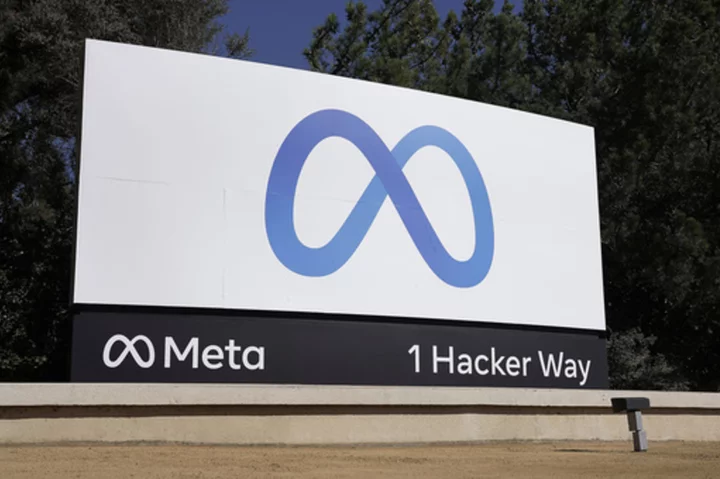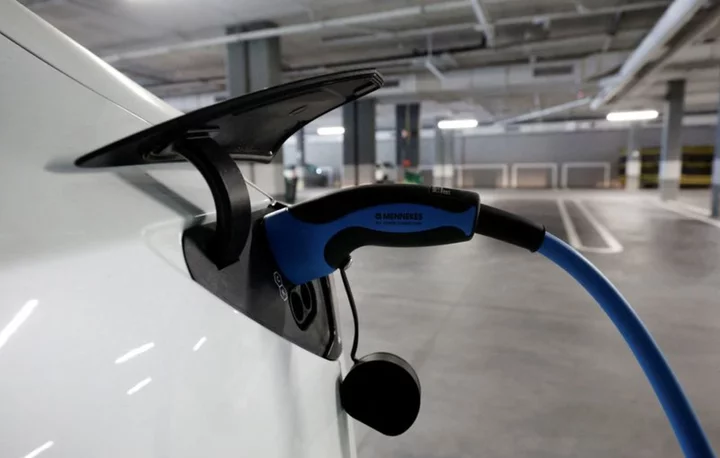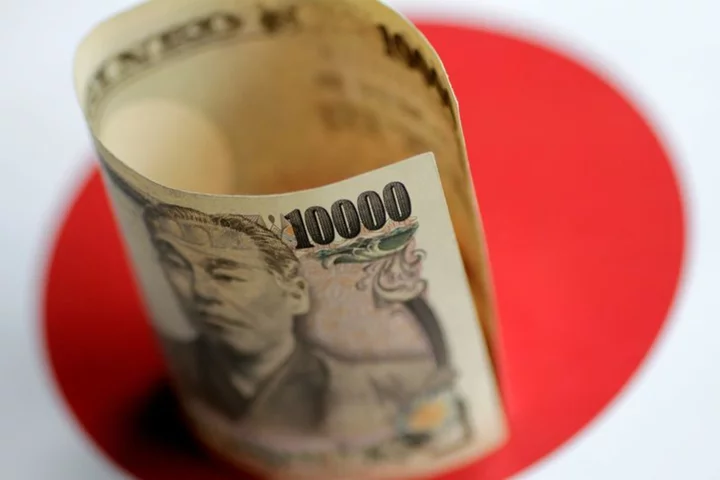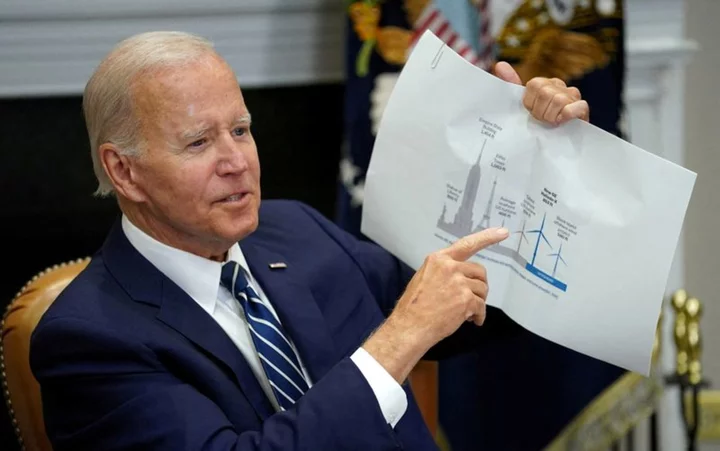By Tim Hepher
PARIS (Reuters) -The head of Dubai's Emirates has urged Rolls-Royce to go "back to basics" and focus on the performance of its engines, a day after the British firm laid out plans to quadruple profits.
Shares in the engine maker rose after CEO Tufan Erginbilgic unveiled a strategy on Tuesday to revive its fortunes including a sharp increase in profit margins and "value-driven pricing," suggesting higher servicing bills.
But Emirates Airline President Tim Clark, who criticised Rolls over pricing and the performance of its largest engine at this month's Dubai Airshow, appeared unswayed by the plans which rely on sharply increasing civil engine profit margins to 15-17%.
"If you have an engine ... not performing as it should do, your costs are going to rise. But your ability to extract value from the client is going to fall simply because the client won't accept non-performance," he told Reuters, referring to the costs borne by engine makers due to service contracts per flight hour.
"It's a very clear kindergarten understanding of cause and effect. Get your product right, design it to what the client wants, give it that high level of reliability. And yes, paradoxically, you can extract more value for your money for your buck in terms of your investment."
At this month's air show, Clark ruled out an immediate deal to buy Airbus A350-1000 jets, the larger of two models, blaming a dispute with Rolls over the poorer-than-expected durability of its engines, coupled with pressure for higher servicing prices.
"I said, guys, you need to go back to basics. Design engines that meet what the client base wants," Clark recalled saying to the engine maker during negotiations, which ultimately gave way to a top-up order for the smaller A350-900.
"We were ready on the -1000. You have no idea how much work I've spent on the interiors of these airplanes," Clark said, adding the engine stand-off had "opened the door" to reviving the Boeing 777-8 as a passenger variant as well as a freighter.
Rolls-Royce had no further comment beyond Tuesday's investor presentation. Airbus declined to comment.
Rolls has acknowledged that the downtime on the XWB-97 engine is greater than expected but has denied suggestions by Clark that the performance level equates to being "defective".
Clark said the idea of ordering the A350-1000 was "not off the table" but added it depended on progress on downtime, noting that Rolls plans to introduce some modifications inherited from its Ultrafan engine technology research in late 2025 or 2026.
"I would say get your engines right .... I promise you: you come up with a good engine, and we will talk to you seriously about a sort of maintenance cost, which gives you the kind of returns that you seek without being over-greedy."
TUG OF WAR
Erginbilgic said on Tuesday the problem of durability was specific to the XWB-97 engine used on the A350-1000 and only in challenging climates. He said Rolls was working with Airbus "to improve that engine to a great level".
The dispute between Emirates and Rolls has brought to light a tug of war between fuel efficiency and "time on wing" or durability of engines, which often have to be traded off against each other on the drawing board, especially for hot climates.
Engine makers want to be rewarded more for their investments in cutting-edge technology given the value of the fuel savings and lower emissions they offer airlines on every mile of flight.
Airlines say they bear the brunt of the disruption and reputational damage when aircraft face unplanned repairs, and have to do so on far narrower profit margins.
"When I see people talking about rates of return ... of 10% or 15%, and we're struggling as an airline industry generally in the realm of 3% or 4% - it's a partnership," Clark said.
He brushed aside the idea of renegotiating existing engine contracts to raise hourly pricing, saying "don't go there".
Clark, who is seen as one of the airline industry's most influential leaders and who runs the largest wide-body fleet, described Rolls as the "gold standard" in engineering but added they and others had been "coming at it the wrong way".
The Emirates boss has also sharply criticised quality problems at Boeing. Broader industrial or supply problems have lingered since the pandemic, while some in the industry including Raytheon Technologies are returning cash to investors.
Clark's message to the wider industry was straightforward.
"You're all fixated on buybacks, rates of return ... I promise you, build us the airplanes that we want and all this will fall into place".
(Reporting by Tim Hepher; Editing by Sharon Singleton and Mark Potter)

